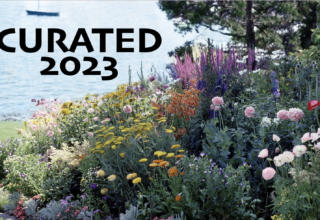
The problem for both schools is, how do we account for round tables, red tables, glass tables, etc. and when is a bench not a table… and so on. Both philosophies agree that we can know a table in a “blink.” The disagreement is how we get to that blinking moment of knowledge.
The Five Minded Man
In 2007, Howard Gardner, a man highly respected for his influence on American education, a preeminent developmental psychologist, and author of Multiple Intelligences, Frames of Mind, Changing Minds, Creating Minds, and The Unschooled Mind, published a book entitled Five Minds for the Future.
He wrote the book, in part, because of what he described as a disheartening observation: even the best-educated students seem unable to explain things about which they might be questioned. His fear was, and presumably still is, that such students may have acquired a great deal of factual knowledge but are proving to be unable to make sense of that knowledge.
His answer to this problem, and the substance of the book, is essentially a return to the traditional liberal education wherein every student was given a sound grounding in the range of human thinking; One that embraced science, mathematics, history, et. al. Gardner’s presumption being that only by seeing things in the context, and through the lenses, of different perspectives can the mind truly make sense of information and knowledge; a skill he deems essential to our success in the future.
Howard Gardner makes summarizing his thinking a “snap.” “Five Minds for the Future outlines the specific cognitive abilities that will be sought and cultivated by leaders in the years ahead.
These include:
The Disciplinary Mind: the mastery of major schools of thought, including science, mathematics, and history, and of at least one professional craft.
The Synthesizing Mind: the ability to integrate ideas from different disciplines or spheres into a coherent whole and to communicate that integration to others.
The Creating Mind: the capacity to uncover and clarify new problems, questions, and phenomena.
The Respectful Mind: awareness of and appreciation for differences among human beings and human groups.
The Ethical Mind: fulfillment of one’s responsibilities as a worker and as a citizen.
Gardner draws from a wealth of diverse examples to illuminate these ideas, designed to inspire lifelong learning and also to provide valuable insights for those charged with training and developing organizational leaders. Drawing on decades of cognitive research and rich examples from history, politics, business, science, and the arts, Gardner writes for professionals, teachers, parents, political and business leaders, trainers, and all who prize the cognitive skills at a premium for tomorrow.”
Download Article 1K Club















